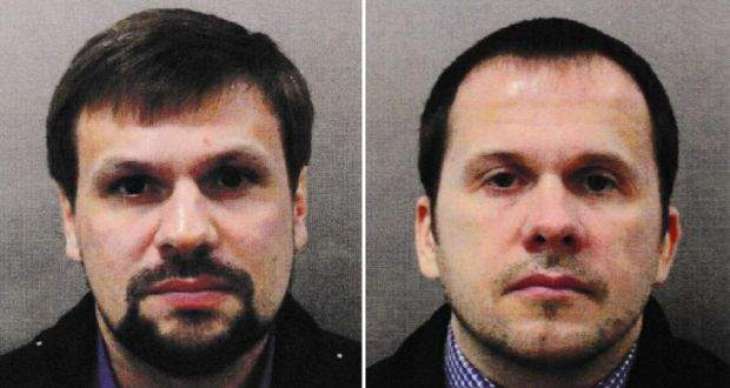Moscow believes that the UK-based website Bellingcat is linked to intelligence services due to the timing of its creation and subsequent publication of its high-profile "investigations," invariable anti-Russia stance, background of its leadership and non-transparent financing, the Russian Embassy in London said on Monday.
LONDON (Pakistan Point News / Sputnik - 15th October, 2018) Moscow believes that the UK-based website Bellingcat is linked to intelligence services due to the timing of its creation and subsequent publication of its high-profile "investigations," invariable anti-Russia stance, background of its leadership and non-transparent financing, the Russian Embassy in London said on Monday.
The Russian authorities have repeatedly criticized Bellingcat, known for publishing unconfirmed reports on high-profile cases for which the West has been holding Moscow accountable albeit without providing any evidence. The cases include the 2014 crash of the MH17 flight in the southeast of Ukraine and the Salisbury poisoning incident. Most recently, on Saturday, Russian Foreign Ministry spokeswoman Maria Zakharova described the UK-based website, which styles itself as "the home of online investigations," as a "tool for leaks."
"The conclusion is that Bellingcat is linked to security services clearly follows from a set of circumstances related to Bellingcat: the timing of its creation [a few days before the MH17 crash], the nature of the information it publishes (combining features of intelligence data and highly professional fakes), its focus [invariably anti-Russian], the timing of the publication of materials [each time at the most favorable moment for NATO nations], the biography of the head [Eliot Higgins who turned overnight from a video gamer into an 'icon' of 'independent journalism'], non-transparent internal structure and financing. If Bellingcat can offer another plausible explanation of such a combination of the facts, it should disclose it for public scrutiny," a spokesperson for the embassy told reporters.
The embassy stressed that London's allegations of Russia having had a role in the Salisbury poisoning incident was "based on flawed assumptions: the nerve agent could have allegedly been produced only in Russia; Russia allegedly has a law encouraging murders of dissidents; and Russian President [Vladimir Putin] allegedly personally made death threats against the traitors and so on."
The spokesperson stressed that the United Kingdom should present clear evidence and recalled that London provided neither Russia nor its partners with concrete data related to the Salisbury incident, such as whether there was a CCTV on the Skripal house and where its records are.
"Why has the United Kingdom refused to transfer any samples of the poisonous substance to Russia? In what volume and concentration was it applied to the door handle, and why did no one, except the Skripals and [police officer] Nick Bailey, get poisoned from this?" the spokesperson wondered, listing further questions about the health condition and whereabouts of the Skripals and reasons for the absence of any information from them.
The embassy spokesperson suggested that Bellingcat could have demonstrated its impartiality and independence if they started searching for answers to these questions.
Most recently, Bellingcat made headlines in September with its claims that two Russians, accused by London of a role in the March poisoning, had ties to the Russian military intelligence agency. The website allegedly discovered the real Names of the men identified by UK authorities as Alexander Petrov and Ruslan Boshirov through uncovered passport data. Both however denied their involvement, saying in an interview to Sputnik and RT they worked in fitness industry and traveled to Salisbury as tourists.
Russian Deputy Interior Minister Igor Zubov slammed the website's information, saying that that it was impossible to understand whether a person works in the GRU just by looking at the migration service's database.
Russian Foreign Minister Sergey Lavrov has repeatedly said that the UK probe into the alleged nerve agent attack on Skripal and his daughter Yulia was falling apart due to a lack of evidence, while London had been rejecting any offer for cooperation.




